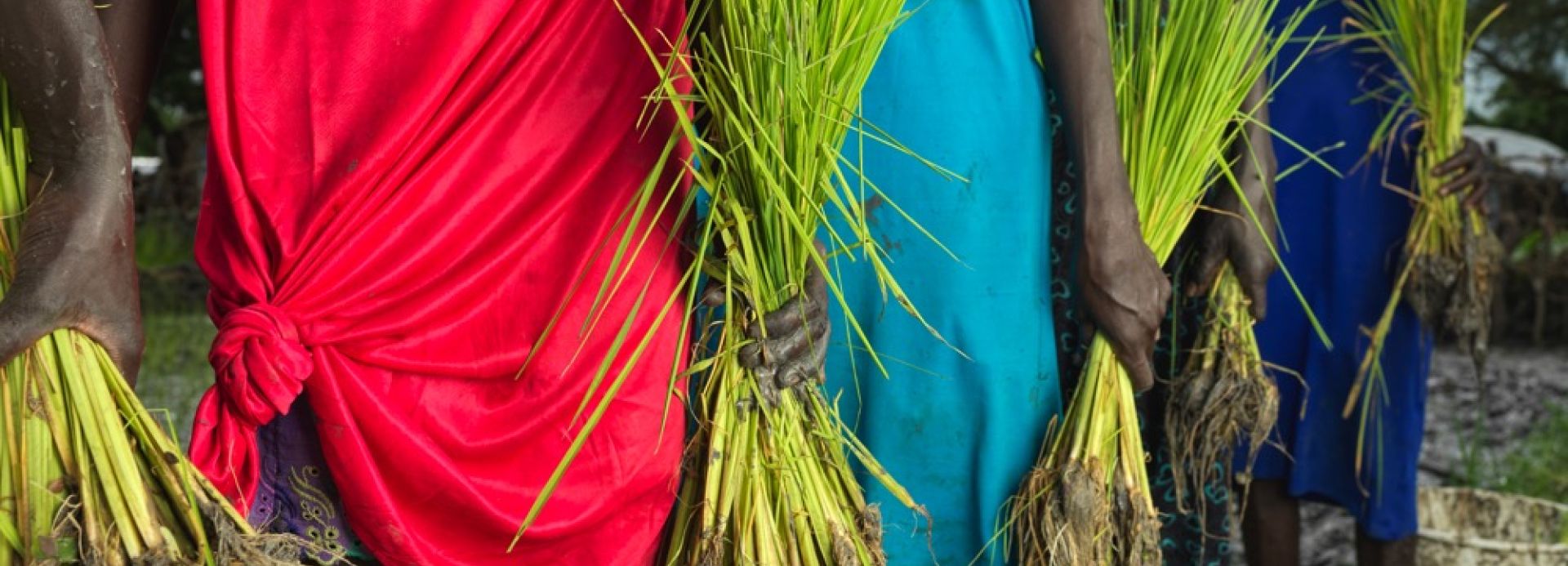
Challenging Times of Poly Crises
Bewaffnete Konflikte, Pandemien, klimabedingte Wetterextreme, wachsende Ungleichheiten: Die Hindernisse im Kampf gegen den Hunger scheinen unüberwindbar zu sein. Das globale Nachhaltigkeitsziel Zero Hunger erscheint zunehmend außer Reichweite, da fast 800 Millionen Menschen an Hunger leiden und drei Milliarden Menschen keinen Zugang zu gesunder Ernährung haben. Dennoch kämpfen Aktivist*innen, Kleinbäuer*innen, Verbraucher*innen, humanitäre Organisationen und politische Entscheidungsträger*innen auf der ganzen Welt für Veränderung und für eine Welt ohne Hunger. Das Human Rights Forum bietet eine Plattform zur Vernetzung und zum Austausch über Synergien in diesen herausfordernden Zeiten der Polykrise. Gemeinsam werden wir die Transformation von Ernährungssystemen und das Recht auf Nahrung sowie humanitäre Fragen rund um Empowerment und vorausschauende humanitäre Hilfe werden bei hybriden Diskussionsveranstaltungen thematisieren. Wir freuen uns auf Ihre Teilnahme - online oder in Berlin!
17. Oktober 2023
Deep Dive I: 10:00 - 12:00 Uhr
Deep Dive II: 13:00 - 15:00 Uhr
Dokumentationszentrum Flucht, Vertreibung, Versöhnung
Stresemannstraße 90, 10963 Berlin
Deep Dives
17. Oktober 2023, 10-12 Uhr
Dokumentationszentrum Flucht, Vertreibung, Versöhnung, Stresemannstr. 90, 10963 Berlin
Online-Teilnahme möglich
Klimabedingte Katastrophen treffen Frauen, Kinder, ältere Menschen und Personen mit Behinderungen besonders hart: Ihre Bedarfe werden in Risikoanalysen und Reaktionsplänen oft nicht beachtet und sie werden in Entscheidungsprozessen trotz ihrer möglichen Beiträge zur Resilienz marginalisiert. Um Inklusion und Resilienz im humanitären System umzusetzen, braucht es einen grundlegenden Wandel zu transformativen Ansätzen. Die deutsche Bundesregierung strebt bereits eine Vorreiterrolle in der vorausschauenden humanitären Hilfe an und verfolgt eine feministische Außenpolitik. Deswegen werden wir bei diesem runden Tisch diskutieren, wie diese politischen Zielsetzungen praktisch zum Kampf gegen Hunger beitragen können. Wie können Geber, Regierungen und Umsetzungsorganisationen inklusive und transformative Ansätze in Frühwarnsystemen und vorausschauender humanitärer Hilfe voranbringen, um Frauen als Change Agents in Zeiten der Klimakrise zu unterstützen? Als Redner*innen sind Audrey Oettli, Co-Vorsitzende der „Gender, Protection and Inclusion“-Arbeitsgruppe des Anticipation Hub, Konstantin Klammert, Referent für vorausschauende humanitäre Hilfe beim Auswärtigen Amt, sowie der stellvertretende Landesdirektor von ACF Bangladesch Tapan Kumar Chakraborty dabei. Die Keynote wird von Fatima Halima Ahmed gehalten, welche an der Umsetzung des Anticipatory Action-Projekts „STEP Bangladesh“ beteiligt ist.
Am runden Tisch werden außerdem folgende Expert*innen teilnehmen:
- Katrin von der Dellen, Teamleiterin Projektentwicklung & Donor Engagement, CARE Deutschland
- Bärbel Mosebach, Humanitarian Director, Welthungerhilfe
- Goda Milasiute, wissenschaftliche Mitarbeiterin, Center for Humanitarian Action (CHA)
- Dr. Andrea Steinke, wissenschaftliche Mitarbeiterin, Center for Humanitarian Action (CHA)
- Stefanie Lux, FbF Koordination, Deutsches Rotes Kreuz
- Chris Coulter, Stv. Exekutivdirektorin, Berghof Foundation
- Anna Hauschild, Forschungsassistenz, Deutsche Gesellschaft für Auswärtige Politik
- Simon Levine, wissenschaftlicher Mitarbeiter, Overseas Development Institute (ODI)
- Tanit Iglesias Zayas, Referentin für Gender und Schutz, ACF France
- Maud Bellon, Koordinatorin für Nothilfevorsorge, ACF France
- Amina Mohamed, Regionale Referentin für Gender, GBV und Schutz, ACF Regional Office West and Central Africa
- Alisa Keesey, Programmdirektorin, GiveLove Foundation
- Hannah Jay, Beraterin, Fokus auf GBV in humanitären Kontexten
17. Oktober 2023, 13-15 Uhr
Dokumentationszentrum Flucht, Vertreibung, Versöhnung, Stresemannstr. 90, 10963 Berlin
Online-Teilnahme möglich
Das industrialisierte Ernährungssystem versagt an mehreren Fronten: Es verursacht ein Drittel der klimaschädlichen Treibhausgasemissionen, während es das Recht auf Nahrung für die drei Milliarden Menschen verletzt, die keinen Zugang zu gesunder Ernährung haben. Machtkonzentration in der Agrarindustrie setzt Kleinbäuer*innen Ausbeutung und Schuldenfallen aus, und die Nahrungsmittelproduktion im globalen Süden wird durch den Anbau von Cash Crops untergraben. Bei diesem runden Tisch wird Emile Frison, Forscher und Mitglied des International Panel of Experts on Sustainable Food Systems (IPES Food), diese Herausforderungen präsentieren und wir werden diskutieren, wie das System sich von seinem klimaschädlichen, ungesunden und ungerechten Status quo hin zu einer gesunden Ernährung für alle transformieren kann und muss. Wie kann Ernährungssouveränität als Leitprinzip für die Ernährungswende umgesetzt werden und aus welchen praktischen Beispielen können wir lernen? Unter den Redner*innen sind Swantje Nilsson, Abteilungsleiterin beim Bundesministerium für Ernährung und Landwirtschaft, John Otieno vom Regionalbüro von Action Against Hunger für das Horn von Afrika und Ostafrika, sowie Paula Gioia von La Via Campesina.
Am runden Tisch werden außerdem folgende Expert*innen teilnehmen:
- Felipe Campelo, Landless Workers’ Movement (MST)
- Savio Carvalho, Global Campaign Lead (Biodiversity), Greenpeace International
- Dr. Daniela de Ridder, Mitglied des Bundestags (SPD)
- Dr. Martin Frick, Direktor des Berliner Büros des World Food Programme
- Lena Luig, Referentin internationale Agrarpolitik, Heinrich Böll Stiftung
- Dr. Lisa Murken, Arbeitsgruppenleiterin “Adaptation in Agricultural Systems”, Potsdamer Institut für Klimafolgenforschung
- Chengeto Muzira, ZIMSOFF/La Via Campesina
- Alisa Keesey, Programmdirektorin, GiveLove Foundation
- Juan Carlos Mendoza, Director, Environment, Climate and Social Inclusion, International Fund for Agricultural Development (IFAD)
- Kathrin Weny, Referentin, Bundesministerium für wirtschaftliche Zusammenarbeit und Entwicklung (BMZ)
SPRECHER*INNEN DEEP DIVE I
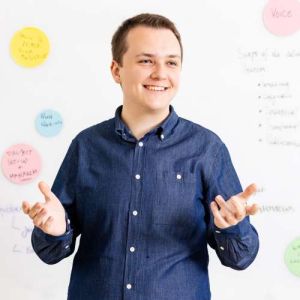
Niklas Balbon
Niklas Balbon
Niklas Balbon is a research associate with the Global Public Policy Institute in Berlin. His current research explores feminist perspectives for supporting Ukraine amid the ongoing Russian invasion. His research interests include the intersection of gender and conflict, post-war development and feminist analyses of (post-) war economies. Previously, he conducted field research on gender relations in post-war Kosovo and co-authored a study on the Donbas war, focusing on social cohesion in eastern Ukraine prior to 2022. Niklas holds a master's degree in conflict, security and development from Kings's College London and a bachelor's degree in political science from Freie Universität Berlin.
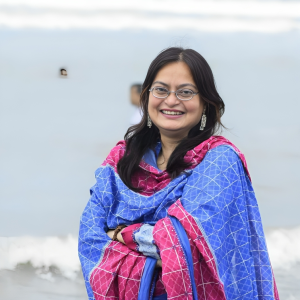
Fatima Halima Ahmed
Fatima Halima Ahmed
Fatima Halima Ahmed has extensive experience in the development sector. After engaging with research activities, she joined at the Bangladesh National Preparatory Committee for the Beijing NGO Forum '95 and after that a national and international level network named Disaster Forum. Since 1999 she has been working in Uttaran, a grassroots organization where she is responsible for resource mobilization. This allowed her to transcend the boundaries of a single sector, while interacting with national and international stakeholders. From championing gender equity, climate change and humanitarian response, advocating for land rights, Fatima embraces a holistic approach to driving lasting change.
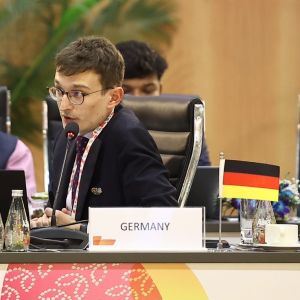
Konstantin Klammert
Konstantin Klammert
Konstantin started working at the German Federal Foreign Office in summer 2022. As a desk officer on disaster preparedness and anticipatory humanitarian action, he also works on the interface between humanitarian assistance and the impacts of climate change.

Audrey Oettli
Audrey Oettli
Audrey Oettli works for the global Protection, Gender and Inclusion (PGI) team of the International Federation of Red Cross and Red Crescent Societies (IFRC), the world's largest humanitarian network. Her work concentrates on improving the protection of individuals in vulnerable situations, and supporting humanitarian programming to be gender-sensitive and responsive to the needs and following the leadership of those most affected. She focuses notably on child protection, safeguarding and child participation in emergency preparedness and response, and co-leads the interagency Working Group on Protection, Gender and Inclusion in Anticipatory Action.
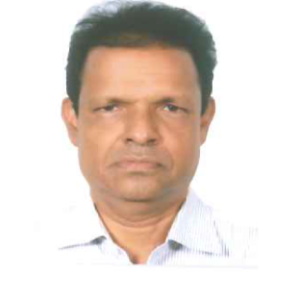
Tapan Kumar Chakraborty
Tapan Kumar Chakraborty
Tapan Kumar Chakraborty is the Deputy Country Director of Action Against Hunger Bangladesh. He oversees ACF Bangladesh's country programs with more than 30 years of experience in the humanitarian & development sector. He has extensive experience in the field of Food Security, Livelihoods, Climate Change Adaptation & Resilience and Disaster Risk Management with a focus on forecast based Anticipatory Action program for ACF, with locally led and inclusive approach and active engagement of most vulnerable communities, especially women and other excluded groups. He promotes impact based forecasting and sector specific anticipatory action in order to save lives, livelihoods and productive assets.
SPRECHER*INNEN DEEP DIVE II

Christine Mhundwa
Christine Mhundwa
Christine Mhundwa is a journalist who has covered current affairs, politics, and financial markets in sub-saharan Africa and Europe. Mhundwa has worked for organisations including CNBC Africa and Bloomberg and is currently based between Berlin where she represents Germany's international broadcaster Deutsche Welle's (DW) flagship Africa bulletin and general news, and Brussels where she reports as a Europe Correspondent. Mhundwa has specialised reporting knowledge in the field of European-African policy, affairs, and partnership.
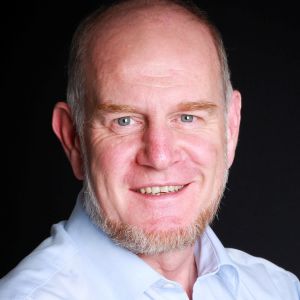
Emile Antoine Frison
Emile Antoine Frison
Emile Frison is a member of the international panel of experts on sustainable food systems (IPES-Food), an expert on conservation and agricultural biodiversity, and one of the founders and senior advisor of the Agroecology Coalition. He was formerly the director general of Bioversity International, a global non-profit research-for-development organization to safeguard agricultural biodiversity. A Belgian national, he has spent most of his career in international agricultural research for development.
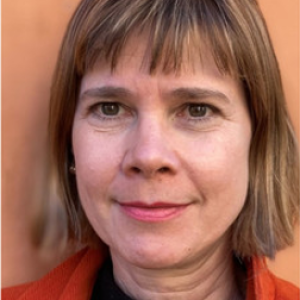
Swantje Nilsson
Swantje Nilsson
Ms. Nilsson has been an employee of the German Federal Ministry of Food and Agriculture (BMEL) for more than 20 years and has worked in various technical and international areas. After working as a desk officer, she was later head of unit in several departments, among those the "International Food and Agriculture Organizations, World Food Security, Sustainable Development" or the "Food, Agriculture and Consumer Protection" unit at the Permanent Mission to the FAO. Since February 2022, Ms. Nilsson has headed the Department for International Cooperation, EU Affairs and Fisheries at BMEL.
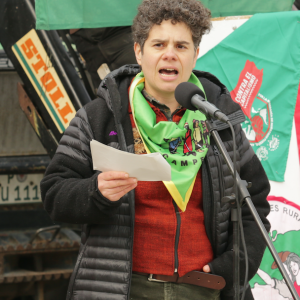
Paula Gioia
Paula Gioia
Paula Gioia (they/them) grew up in Brazil and later became a peasant farmer and beekeeper in Germany. They now live on a collective farm in Brandenburg and are a member of the farmer's association AbL e.V. and of the European Coordination Via Campesina. Paula advocates for the rights of peasants (UNDROP), for agroecology and the realization of food sovereignty. A queer-feminist approach is always in their political work. Paula currently represents peasant farmers in the UN Committee on World Food Security (CFS).
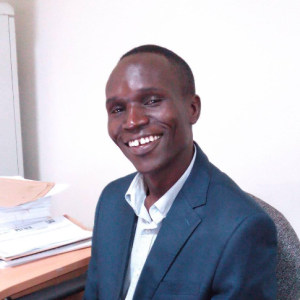
John Otieno
John Otieno
John Otieno Otieno is a regional advocacy officer at the Action Against Hunger regional office in Nairobi, Kenya. He is a is a trained nutritionist with 14 years of experience and has previously worked as Food and Nutrition Manager at FEED The Children Kenya coordinating nutrition programs. He now leads Action Against Hunger’s efforts to influence policies and build relationships with governments and decision makers on humanitarian and development issues, and oversees the development and implementation of advocacy strategies in the region.


